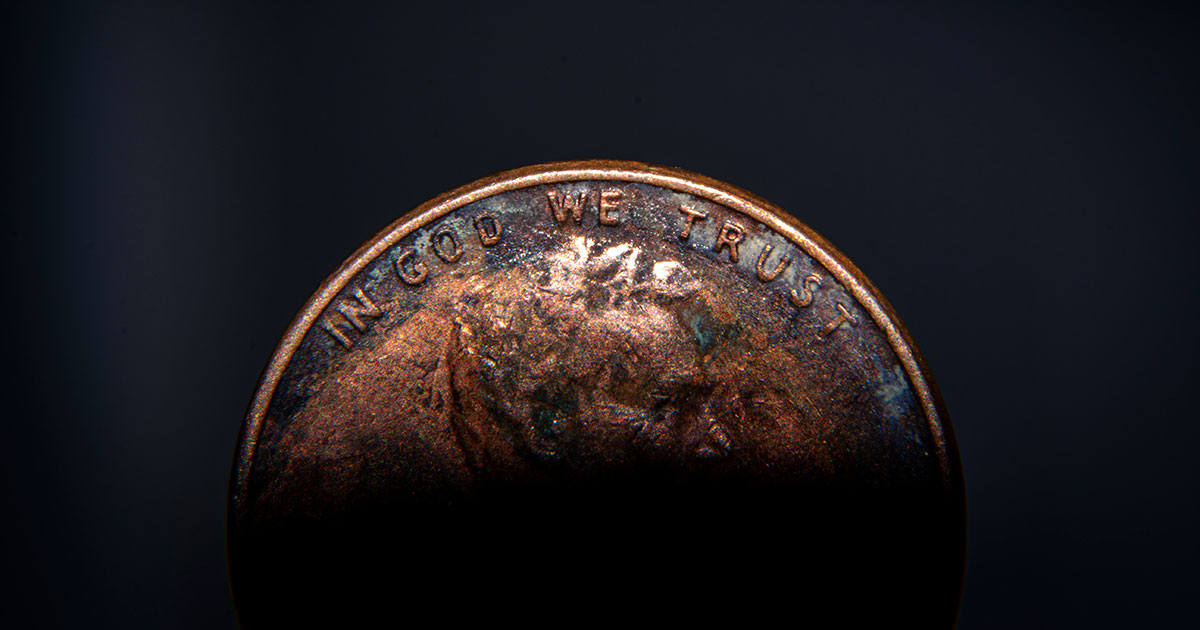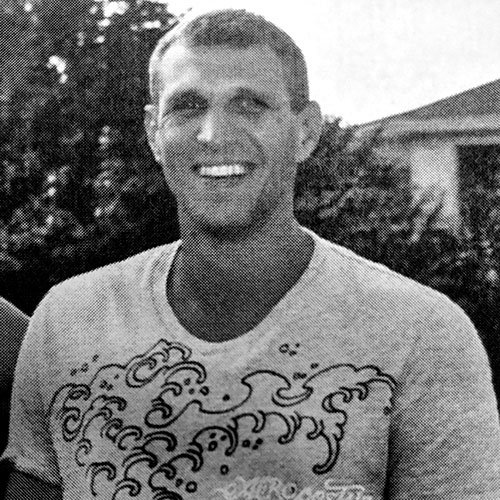FROM THE INSIDE
★ ★ ★ ★
THE DISCOVERY OF CHANGE

Image by Adam Nir
By Ryan M. Moser
Yesterday, I held a penny for the first time in seven years. A program volunteer accidentally dropped some spare change out of his pocket, bouncing onto the white institutional tile floor and settling under my chair. A common occurrence. Yet when I picked up a flat penny to return it, something extraordinary happened—an awakening. A sudden attainment of enlightenment under a bodhi tree.
It felt much lighter and thinner and smaller in diameter than what I remember pennies being before I came to prison. Incarcerated people don’t use money, and I hadn’t felt the jingle of coins in my pants for years.
“Dude, have they changed the design of a penny?” I asked my friend sitting next to me.
He grabbed the copper-plated zinc circle and analyzed it.
“I think it’s slimmer. It’s hard to tell. What’s the date?”
As we sat there contemplating the possibility, I couldn’t stop thinking about the existence of micro-changes in life since coming to prison for my addiction. I’d always been aware of the macro-presidential elections, Black Lives Matter, babies born and parents dying, wars ending—but I’d yet to really notice the more subtle differences in the world over the past seven years.
As I held the Lincoln Memorial between my thumb and forefinger, I pondered common things that were going on outside of prison that I was missing: the three little dots of an incoming text message; the ubiquity of Tik Tok; the Internet of Things; Olivia Rodrigo and self-driving cars. Most were technological advances or cultural trends, but it went deeper than that too; slowly changing things like my son’s athleticism or our warming planet got past me.
Inside these walls of steel and concrete and delusion, many of us hold onto the misconception that the world is frozen in time while we follow our daily routines. That society is simply waiting for us to return before starting to move again. But this is an institutionalized falsehood: a fairy tale told throughout the cell blocks of the penitentiary to help reconcile the forward passage of time without us.
I do my best to follow trends, current events, pop culture, modem technology, and breaking news flying past at the speed of light. To stay connected to the everyday forces that push life forward. I consume every bit of information I can, swallowing it like a blue whale feasting on krill. I’m a voracious reader, looking at Vanity Fair, the New York Times, Wired, and Esquire religiously. I buy novels and talk to my family on the phone about everything; watch political debates and the Oscars and Grammys on television. I listen to hip music and NPR. I’ll do anything to keep my finger on the pulse of a globe beyond my reach; to hold onto a lifeline of normalcy that can keep me afloat until my return.
But sometimes it’s not enough.
Even with all of these sources of information, there are still so many things that incarcerated men and women miss out on that we don’t even realize, and sometimes won’t until we get out. And when we are released, which most of us will be, it will feel like being rescued from a desert island in the vast sea. A castaway searching to find their place in a new and foreign civilization.
But I will not grieve what I cannot stop; on the contrary, I’ll embrace the brave new world I’m about to reenter, and feel a sense of appreciation for the small things I’ll learn about. Discovery is one of the most interesting things to a human brain, and I will live joyfully for that sense of wonder.
For many of us being stored in this time capsule surrounded by razor-wire, fighting change isn’t much different than an older generation losing touch with the younger—we always have a choice of whether that will happen. I choose re-invention. Discovery. Wonder. I will ask questions, live with curiosity, and not lament the missed minutia and nuances of freedom.
And maybe this will help me later in life, when I’m forced to make the decision again, as my grandchildren tell me about their pet androids and their new favorite band. So I will still try in vain to stay abreast of modem life while behind the walls of a prison, but inevitably, I’ll continue to come across different kinds of pennies, and pause to be amazed.

Ryan M. Moser is a recovering addict serving a ten-year sentence in the Florida Department of Corrections for a nonviolent property crime. Previous publications include Evening Street Press, Storyteller, Santa Fe Literary Review, The Progressive, themarshallproject.org, medium.com, thewildword.com, thestartup.com, and more. In 2020, his essay “Injuries Incompatible with Life” received an Honorable Mention award from PEN America, including publication on pen.org. Ryan is a Philadelphia native who enjoys yoga, playing chess, and performing live music. He is a proud father of two beautiful sons.
This column was made possible with the help of Exchange for Change, a non-profit based in Florida that teaches writing in prisons and runs letter exchanges between incarcerated students and writers studying on the outside.
Exchange for Change believes in the value of every voice, and gives their students an opportunity to express themselves without the fear of being stigmatized. Their work is based on the belief that when everyone has the ability to listen and be heard, strong and safe communities are formed, and that with a pen and paper, students can become agents of change across different communities in ways they may otherwise have never encountered.
























0 Comments